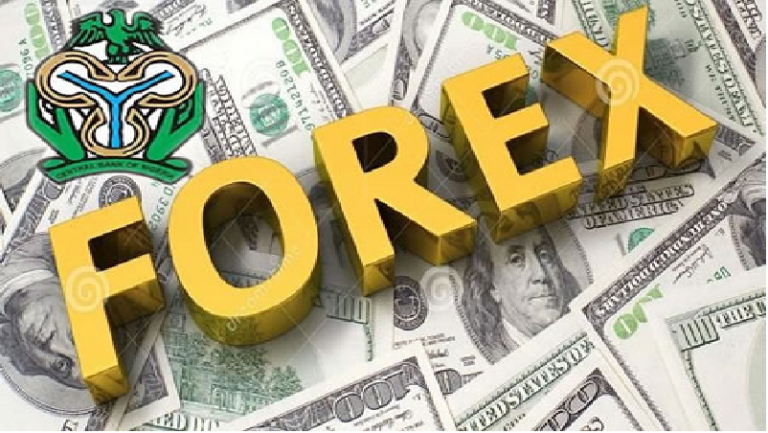
Nigeria’s foreign exchange market in January 2025 tells a story of shifting control—one that subtly exposes the weakening grip of the Central Bank of Nigeria (CBN) over the country’s forex inflows, even as private players quietly expand their footprint.
According to the January 2025 Economic Report released by the CBN on April 17, net foreign exchange inflows into the economy dropped to $4.79 billion, down 4.49% from $5.01 billion recorded in December 2024. At first glance, this may seem like a minor dip. But scratch beneath the surface and a deeper trend becomes evident: the sharp decline in CBN-led inflows contrasts starkly with the surge in autonomous inflows—those from non-government sources like private exporters, international investors, and diaspora remittances.
The central bank’s share of foreign exchange inflows plummeted to $2.33 billion in January, a dramatic fall from $4.09 billion in December—a 43% drop in just one month. On the other hand, autonomous inflows surged to $7.31 billion from $6.08 billion, marking a growing confidence in private channel participation amid the government’s struggle to maintain its influence in the FX ecosystem.
Register for Tekedia Mini-MBA edition 19 (Feb 9 – May 2, 2026).
Register for Tekedia AI in Business Masterclass.
Join Tekedia Capital Syndicate and co-invest in great global startups.
Register for Tekedia AI Lab.
While aggregate inflows fell from $10.17 billion to $9.63 billion during the period, foreign exchange outflows also eased to $4.84 billion from $5.17 billion. But it’s the breakdown of these flows that truly reshapes the narrative. Outflows through the CBN dropped to $3.80 billion from $4.16 billion, yet that reduction did not cushion the impact of falling inflows through the same channel. What resulted was a net outflow of $1.47 billion via the CBN—a reversal from the marginal net outflow of $0.07 billion in December. Autonomous sources, by contrast, posted a net inflow of $6.26 billion, up from $5.07 billion.
Naira Finds Strength, Turnover Rises
The foreign exchange market itself responded in kind. The naira appreciated at the Nigerian Foreign Exchange Market (NFEM), strengthening by 1.16% to an average of N1,535.94 per US dollar in January from N1,553.73 in December. The end-period exchange rate fared even better, gaining 3.90% to close at N1,478.22 from N1,535.82.
Increased confidence among market participants also translated into activity. Average daily turnover on the NFEM jumped 18.30% to $408.49 million, up from $345.30 million in December, underscoring a more liquid market with greater participation—again, largely driven by the non-official segment.
Is CBN Losing Its Grip on FX Inflow?
While the improvement in the exchange rate and growing liquidity appear encouraging, the underlying shift in forex inflow dynamics calls for concern. A declining share of inflows through the CBN signals dwindling government capacity to intervene in the market when necessary. This erosion of influence can become problematic if external shocks hit—especially in the absence of robust reserves or policy buffers.
It also poses a challenge to the country’s balance of payments, which leans heavily on oil receipts and foreign investments typically channeled through official sources. As the CBN recedes, the onus shifts to private capital to plug the gap—an unreliable solution at best in an economy where investor confidence can evaporate quickly.
Yet the rise in autonomous inflows may offer some hope. It reflects renewed activity among non-oil exporters, possibly spurred by exchange rate adjustments and sustained remittance flows. If properly incentivized and regulated, these inflows could become more stable over time and help Nigeria reduce its overreliance on oil-linked forex.
The CBN’s declining role also speaks to broader questions of confidence in government-led monetary policy. The foreign exchange market has long been plagued by dual rates, inconsistent interventions, and a lack of transparency. Investors and exporters often prefer alternative channels to avoid bureaucratic delays or unfavorable rates. The result is an FX market where informal and autonomous channels increasingly call the shots.
Going forward, economic analysts argue that simply watching the naira appreciate month to month is not enough. They note that the government must address core structural problems: rebuild external reserves, improve non-oil exports, and restore trust in CBN’s policy framework.
According to them, Nigeria’s foreign exchange scene may continue to be dominated by autonomous actors, not out of strength, but because the official channels have ceded ground if the above steps are not taken.



